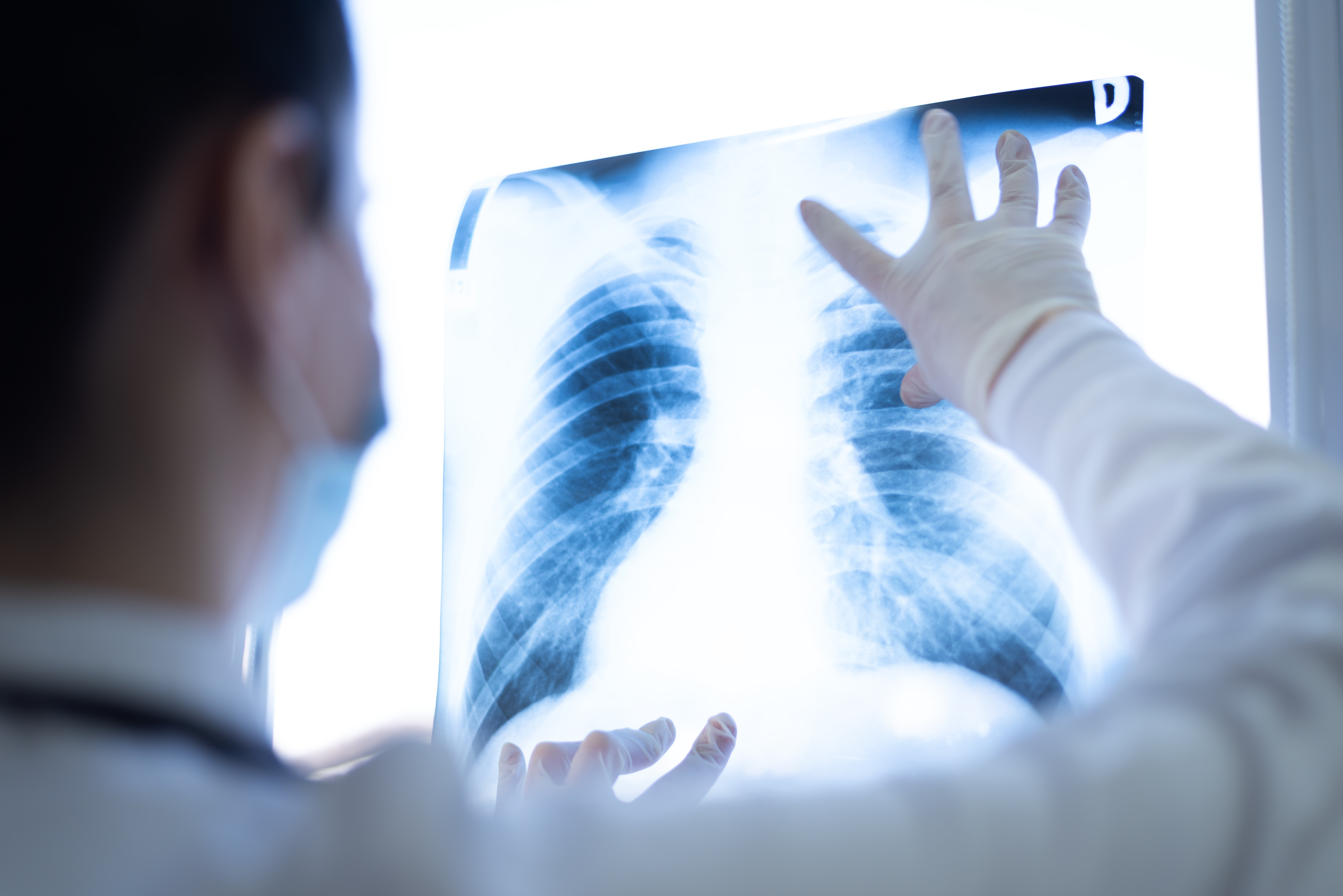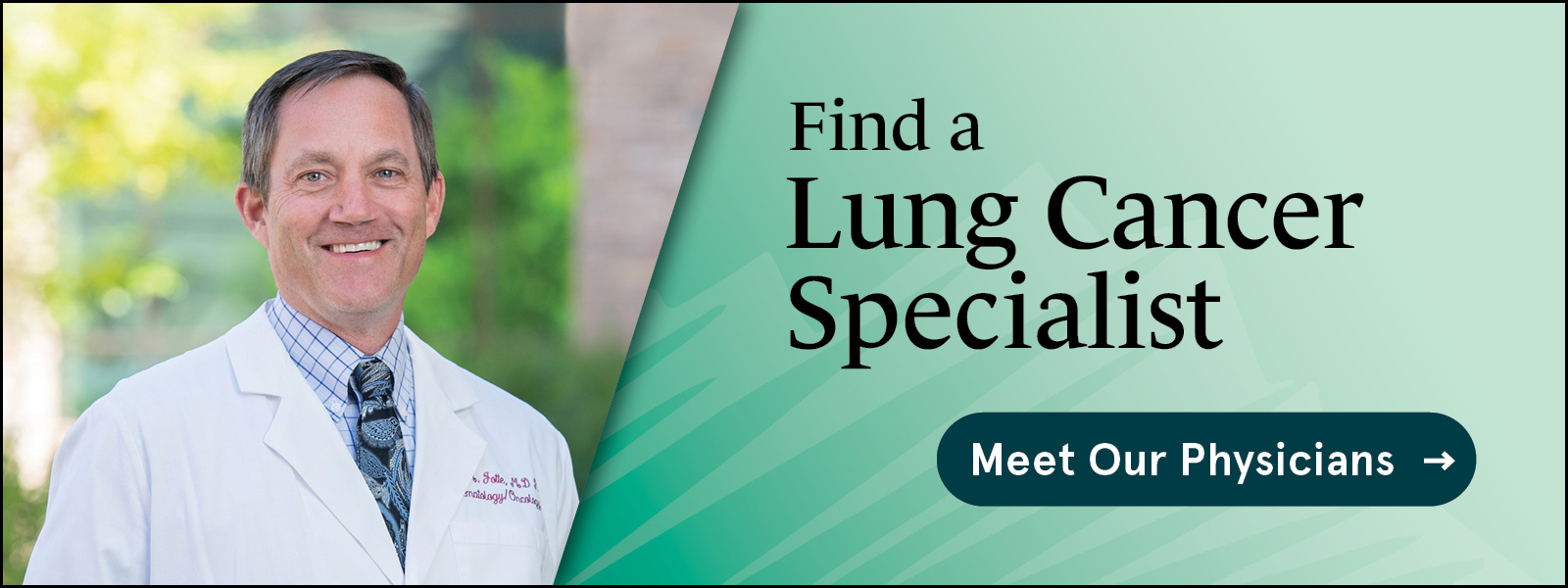Signs & Symptoms of Lung Cancer
Lung cancer is a very serious — and sometimes scary — topic to discuss. Not only is it the leading cause of cancer deaths among both men and women, but a good 20% of those diagnosed are also people who’ve never smoked at all! Unfortunately, lung cancer can happen to anyone. Whether you’re young or old, a smoker or non-smoker, Rocky Mountain Cancer Centers (RMCC) wants you to have all the information you need to be on the lookout for lung cancer symptoms.
Early Lung Cancer Symptoms
As with most other cancers, lung cancer symptoms don’t usually present themselves until the cancer has become more advanced. With that said, that’s not always the case for everyone. For some people, something as minor as a slight cough or shortness of breath could be an early symptom of lung cancer— especially if it continues to progress, rather than get better.
Treatment for lung cancer, like most cancers, is more likely to be effective if the cancer is diagnosed early. Because of that, we recommend you contact your doctor if you are experiencing any of these lung cancer symptoms:
- A lingering cough
- Coughing up blood or coughing up spit or phlegm tainted with blood
- Difficulty breathing
- Hoarseness
- Unexplained weight loss and loss of appetite
- Chest pain that worsens with deep breathing, coughing, or laughing
- Fatigue and/or weakness
- New onset of wheezing
- Recurring (chronic) infections such as bronchitis and pneumonia
Free Guide for Newly Diagnosed Lung Cancer Patients
Advanced Lung Cancer Symptoms
Once lung cancer becomes advanced and spreads to other areas of the body, symptoms often change. Some advanced lung cancer symptoms may include:
- Bone pain
- Jaundice (yellowing of the skin and eyes)
- Lumps in the neck and/or collarbone region
- Headache, dizziness, or weakness in the arms or legs
Syndromes Caused By Lung Cancer
Sometimes, syndromes— groups of very specific symptoms — can be caused by lung cancers. However, because these syndromes can affect other organs in the body, your physician may misdiagnose, thinking something other than lung cancer is causing the problem. These syndromes include:
- Horner syndrome, which is a combination of symptoms caused by a disturbance in the nerve pathway that runs from the brain to the face and eye on one side of the body. Typically, Horner syndrome results in drooping or weakness of one eyelid, decreased pupil size, and reduced or absent sweating on the affected side of the face.
- Superior vena cava syndrome (SVCS), is a syndrome that occurs when a person’s superior vena cava (the major vein that carries blood from the head and arms back to the heart) has a partial blockage or compression. Common symptoms of SVCS include difficulty breathing or shortness of breath, coughing, and swelling of the face, neck, upper body, and arms.
- Paraneoplastic syndromes are rare disorders triggered by substances produced and secreted by the tumor. These hormone-like substances affect distant tissues and organs, even though the cancer itself has not spread to those same areas. Some common paraneoplastic syndromes associated with lung cancer are:
- SIADH (syndrome of inappropriate antidiuretic hormone)
- Cushing syndrome
- Hypercalcemia (high blood calcium levels)
- Excess growth or thickening of certain bones
- Blood clots
- Nervous system problems
- Gynecomastia (excess breast growth in men)
In many cases, most symptoms that can be related to lung cancer, including the syndromes, are the result of something other than lung cancer. Regardless, if you notice one or more of these signs or symptoms, or anything unusual, it is important to see your doctor immediately so the cause can be found and treated, if needed.
At Rocky Mountain Cancer Centers we are committed to helping you battle lung cancer by providing access to advanced, holistic care in a community-based setting. Together, we will develop a personalized treatment plan that will cover all your needs.


